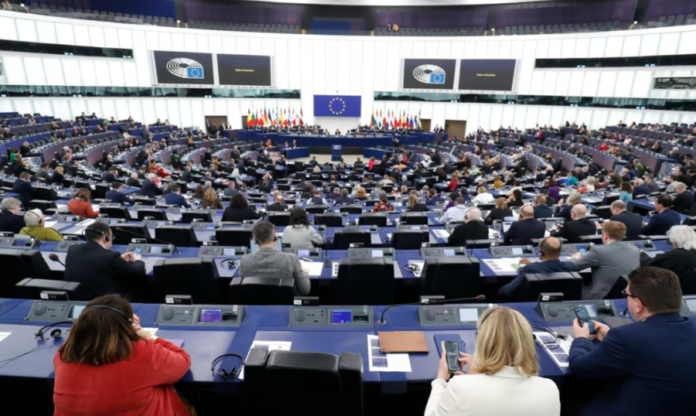European Union lawmakers on Tuesday adopted key pieces of a package designed to achieve the EU’s climate goals of cutting emissions of the gases that cause global warming by 55% over this decade, AP News reports.
European Parliament members approved deals to reform the 27-nation bloc’s emissions trading system, introduce a so-called carbon border adjustment mechanism and to create a new hardship fund for vulnerable households and small businesses affected by higher fuel costs arising from the new measures.
The reform of the emissions trading system, which covers about 40% of the EU’s greenhouse gas emissions, stipulates that European industries and energy companies should cut emissions by 62% by 2030 compared to 2005 levels, compared to a target of 43% under the previous rules.
To ensure a level playing field, member nations also agreed in December to introduce a tax on foreign companies that want to import products which don’t meet the climate-protection standards with which European companies have to comply.
Meanwhile, the EU will phase out free carbon allowances for its own producers, ending in 2034. The goods covered by the border adjustment mechanism are iron, steel, cement, aluminium, fertilizers, electricity and hydrogen, and other indirect emissions under certain conditions.
“Importers of these goods would have to pay any price difference between the carbon price paid in the country of production and the price of carbon allowances in the EU ETS,” lawmakers said.
EU lawmakers gathered in the French city of Strasbourg also voted in favor of a social climate fund to help individuals and small companies manage higher costs for fuel. The fund worth tens of billions of euros would be phased in from 2026 and filled with proceeds from the auction of emissions vouchers.
The laws are part of the bloc’s “Fit for 55” package, which is intended to help the EU cut its greenhouse gas emissions by 55% by 2030 from 1990 levels and achieve “net zero” emissions by mid-century.


